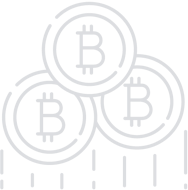
TokenStub - 이벤트 티켓 시장
TokenStub는 $ (33) 억 이벤트 발권 산업을 방해하는 것을 목표로 이벤트 티켓 판매를위한 분산 인프라이다. 발권 산업은 문제에 시달리고있다. 소비자 인해 티켓의 대부분을 구입하는 봇을 사용하여 정교한 리셀러의 확산에 주요 시장에서 차단됩니다. 소비자가 차 시장에 액세스 할 수있는 경우, 일반적으로 단지 평균 이하 좌석을 사용할 수 있습니다 - 고객이 그 자리를 확보하기 위해 엄청난 비용을 지불해야합니다. 이벤트에 티켓이 매진되는 경우, 소비자는 일반적으로 그들의 표를 소스로 유통 시장에 켜십시오. 유통 시장에, 그들은 인해 투명성의 부족으로 높은 비용과 위험 사기를 지불해야합니다.
STO/ICO기본정보
Claim this listing and publish updates.
기본정보
| 플랫폼 | 불분명 |
|---|---|
| 타입 | 불분명 |
| 참가가능화폐 | BTC, ETH |
| 유통량/발행량 | 불분명 |
| KYC | 불분명 |
| 제한 구역 | 불분명 |
| 웹사이트 | 홈페이지 |
| 백서 | 다운로드 |
개요
TokenStub’s blockchain-based decentralized ticketing platform provides natural solutions to many of these challenges and promises a fair, efficient and secure marketplace for both buyers and sellers.
Greater access
The TokenStub platform utilizes a unique profiling and queueing system to ensure that real customers are able to access the primary ticket sales market rather than bulk ticket buyers. This ensures that individual customers have greater opportunity than the scalpers to purchase front row seats.
Lower fees
TokenStub has fewer overheads than a centralized ticketing marketplace and is able to distribute those savings to both the buyers and sellers. TokenStub only charges the seller a low 1% service fee on the price of each ticket sold in the marketplace. Service fees are used to cover TokenStub’s operational expenses. Resold tickets incur a 5% fee passed on to the previous holders of that ticket. Buyers do not pay any fee.
Transparency
Unlike traditional sales channels, all transactions occurring on the blockchain can be viewed by the entire community. In the current market, there is no way to determine if a primary ticket seller has released a small portion of their tickets on the primary market and subsequently dumped the rest on secondary markets with a massive markup, which seems to be a common technique in the industry.
Seller incentives
With traditional ticket sales, after a transaction is complete, the seller no longer has any ties to that ticket. With TokenStub, upstream sellers of the tickets continue to collect revenue each time the ticket is resold. Whenever a ticket is resold, 5% of the profit over the previous sale is charged as a fee and distributed evenly between all previous sellers of the ticket.